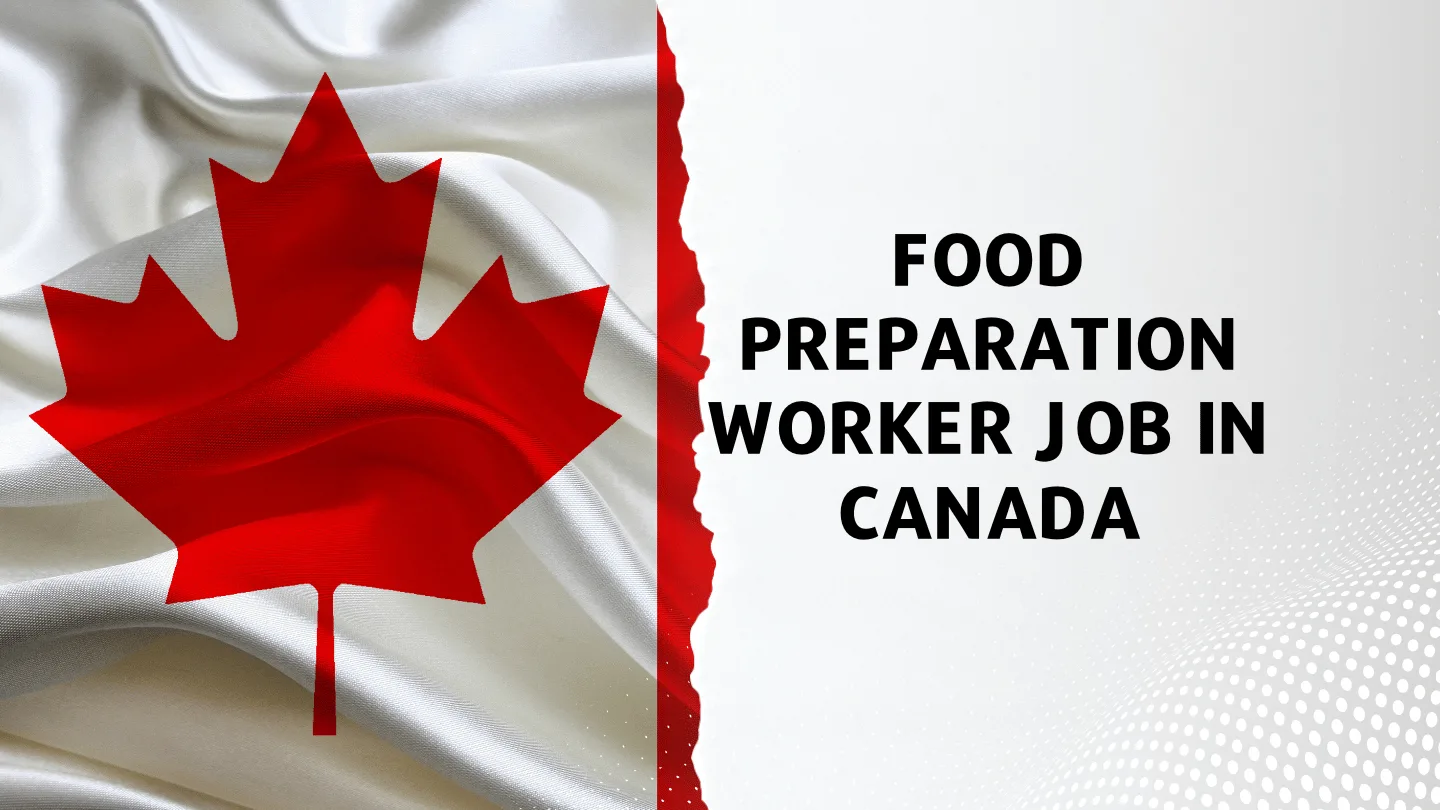Food Preparation Worker Career Opportunities in Canada
Canada offers exciting opportunities for individuals interested in pursuing a career as a food preparation worker. This dynamic profession plays a crucial role in the culinary and hospitality industries, providing essential support in various food service environments.
Understanding the Role
Food preparation workers are responsible for performing a wide range of tasks that keep commercial kitchens running smoothly. Their core responsibilities typically include:
- Cleaning and sanitizing food preparation areas
- Washing and preparing ingredients
- Measuring and portioning food items
- Assisting chefs and kitchen staff with meal preparation
- Maintaining food safety and hygiene standards
Employment Landscape
The job market for food preparation workers in Canada is diverse and robust. Potential employers include:
- Restaurants and dining establishments
- Hospitals and healthcare facilities
- Schools and educational institutions
- Catering companies
- Hotels and resorts
- Cafeterias and corporate dining services
Required Skills and Qualifications
Successful food preparation workers typically possess a combination of technical and interpersonal skills. Key attributes include:
- Physical stamina and ability to stand for extended periods
- Attention to detail
- Basic math skills for measuring ingredients
- Strong understanding of food safety protocols
- Ability to work efficiently in a fast-paced environment
Training and Education
While formal education is not always mandatory, aspiring food preparation workers can enhance their employability through various training options:
- Food handler certification programs
- Culinary arts diplomas
- Professional kitchen safety courses
- On-the-job training programs
Salary and Compensation
Compensation for food preparation workers in Canada varies depending on location, experience, and specific workplace. Entry-level positions typically start around $15-$18 per hour, with potential for growth as skills and experience increase. Urban centers like Toronto, Vancouver, and Montreal often offer higher wages compared to smaller communities.
Career Advancement Opportunities
Many food preparation workers use this role as a stepping stone to more advanced culinary careers. Potential progression paths include:
- Kitchen assistant
- Line cook
- Sous chef
- Catering coordinator
- Restaurant management
Regional Considerations
Different provinces may have varying demand for food preparation workers. Provinces with robust tourism and hospitality sectors like British Columbia, Ontario, and Alberta typically offer more employment opportunities. Rural and urban areas might present different work environments and potential for career growth.
Work Environment
The work environment for food preparation workers can be fast-paced and physically demanding. Professionals in this field should be prepared for:
- Standing for long periods
- Working in temperature-varied kitchen environments
- Following strict safety and hygiene protocols
- Collaborating with diverse kitchen teams
Future Outlook
The food service industry continues to grow in Canada, creating steady demand for skilled food preparation workers. Technological advancements and evolving culinary trends ensure this profession remains dynamic and engaging.
Individuals passionate about food, teamwork, and maintaining high-quality kitchen standards will find food preparation work an excellent career opportunity in Canada’s vibrant hospitality landscape.
Essential Skills and Requirements for Food Preparation Jobs
Canadian food preparation jobs offer exciting opportunities for individuals seeking a dynamic career in the culinary industry. These roles are crucial in restaurants, cafeterias, catering services, and other food service establishments across the country.
Key Professional Competencies
Successful food preparation workers must possess a comprehensive set of skills that go beyond basic cooking techniques. Employers look for candidates who demonstrate:
- Strong knife handling and cutting skills
- Precise measurement and portioning abilities
- Efficient workspace organization
- Excellent time management capabilities
- Ability to work under pressure in fast-paced environments
Educational and Training Requirements
While formal education is not always mandatory, certain credentials can significantly enhance employment prospects. Many employers prefer candidates with:
- High school diploma or equivalent
- Food handling safety certification
- ProServe or FOODSAFE certification
- Vocational training in culinary arts
Physical and Health Considerations
Food preparation roles demand physical stamina and adherence to strict health standards. Workers must be capable of standing for extended periods, lifting heavy ingredients, and maintaining exceptional personal hygiene. Employers prioritize candidates who can demonstrate:
- Physical fitness and endurance
- Ability to lift up to 20-25 pounds
- Clean and professional appearance
- Commitment to workplace safety protocols
Technical Skills and Knowledge
Modern food preparation jobs require proficiency with various kitchen equipment and technologies. Successful candidates should be comfortable with:
- Commercial kitchen appliances
- Digital temperature monitoring systems
- Inventory management software
- Advanced food storage techniques
Workplace Communication
Effective communication is paramount in food service environments. Workers must collaborate seamlessly with chefs, servers, and management teams. This involves clear verbal instructions, active listening, and professional interpersonal interactions.
Salary and Career Progression
Entry-level food preparation workers in Canada typically earn between $15-$20 per hour, depending on location and experience. Urban centers like Toronto, Vancouver, and Montreal often offer higher wages. Career advancement opportunities include:
- Kitchen assistant roles
- Specialized food preparation positions
- Culinary training programs
- Management track opportunities
Legal Work Considerations
International candidates interested in food preparation jobs must secure appropriate work permits. The Canadian government provides various immigration pathways for skilled workers, including temporary work permits and permanent residency options through express entry programs.
Emerging Trends
The food preparation sector continues to evolve with technological advancements and changing consumer preferences. Professionals who stay updated on sustainable cooking practices, plant-based cuisine, and innovative food preparation techniques will find themselves more competitive in the job market.
Aspiring food preparation workers should view this role as a gateway to exciting culinary careers. By developing robust skills, maintaining high standards of professionalism, and remaining adaptable, individuals can build rewarding careers in Canada’s vibrant food service industry.
Conclusion
The landscape of food preparation worker jobs in Canada offers promising opportunities for those passionate about culinary work. As the food service industry continues to evolve, skilled workers who demonstrate adaptability, attention to detail, and a strong work ethic will find themselves well-positioned for success.
Aspiring food preparation workers can significantly enhance their career prospects by investing in continuous skill development. Whether working in restaurants, hotels, cafeterias, or catering services, professionals who combine practical experience with relevant certifications will stand out in the competitive job market.
The demand for food preparation workers across Canada remains steady, with opportunities spanning urban and rural areas. Employers value workers who can demonstrate not just technical cooking skills, but also strong communication, teamwork, and food safety knowledge. By focusing on these core competencies, individuals can build rewarding careers in this dynamic field.
Ultimately, success as a food preparation worker requires more than just technical skills. It demands a genuine passion for food, a commitment to quality, and the ability to work efficiently under pressure. Those who approach their role with professionalism and enthusiasm will find numerous pathways for growth and advancement in Canada’s vibrant food service industry.
Aspiring professionals should remain proactive in their career development. This means staying updated on industry trends, pursuing additional training, and being open to diverse work environments. With the right approach, a career as a food preparation worker can offer stability, personal satisfaction, and ongoing opportunities for professional growth in Canada’s rich culinary landscape.



